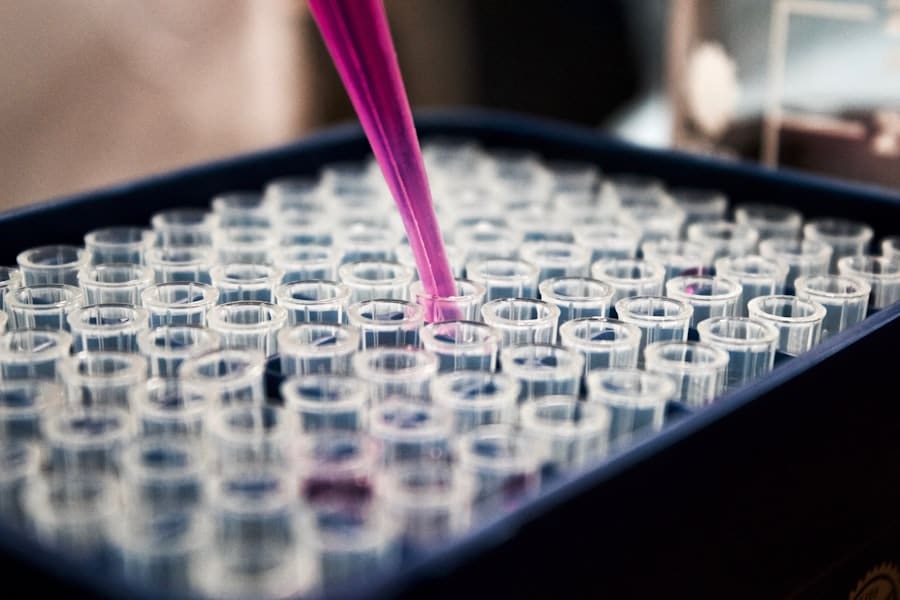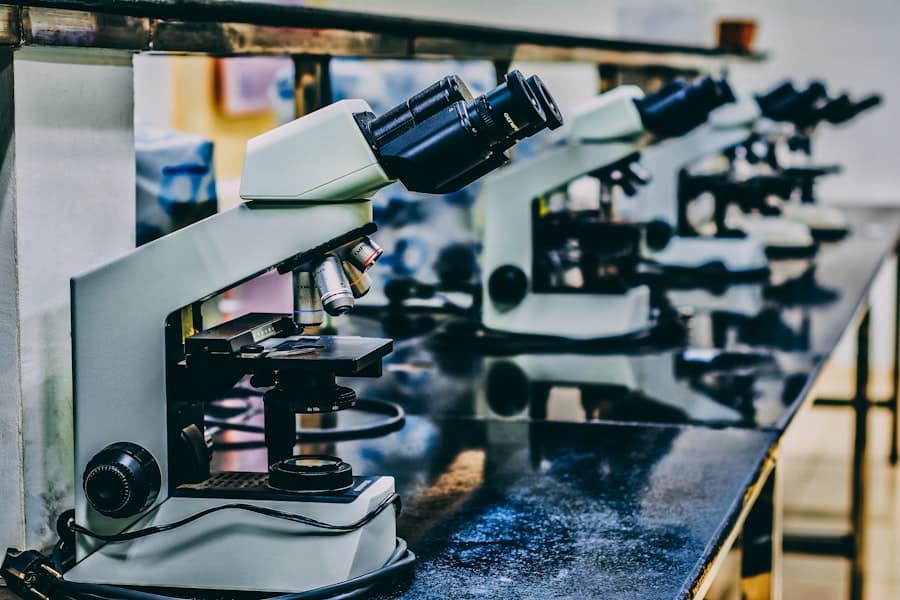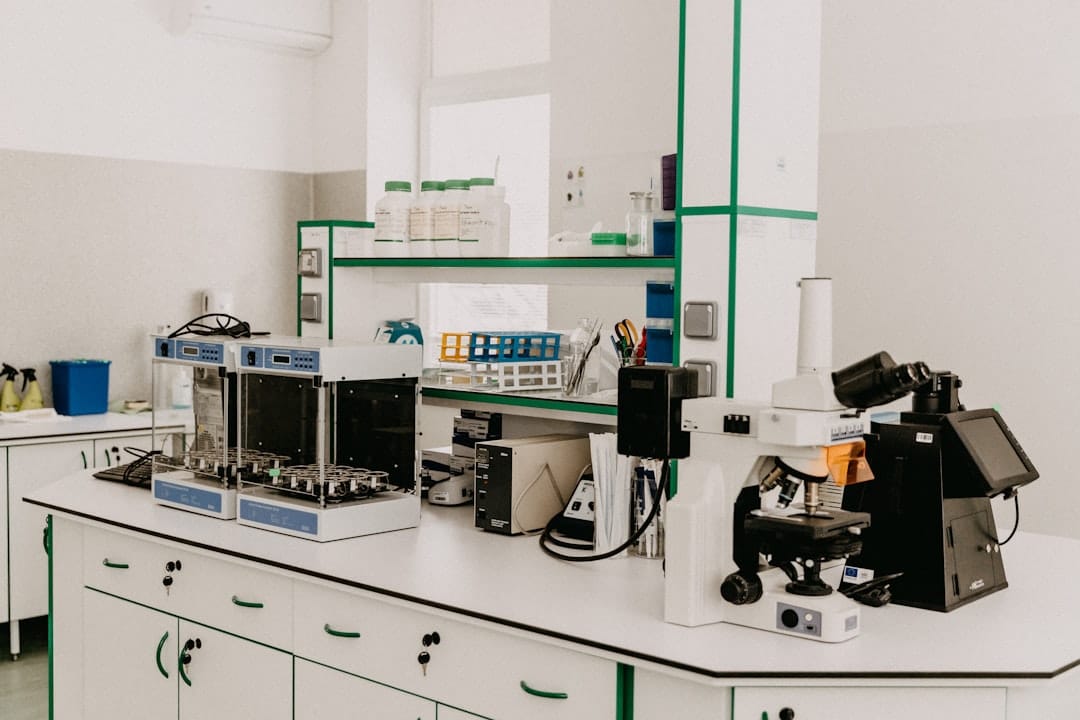Precision fermentation represents a groundbreaking approach in the food technology sector, particularly in the production of dairy products. This innovative method leverages advanced biotechnology to create dairy proteins and other components without the need for traditional animal farming. By utilizing microorganisms such as yeast, bacteria, and fungi, precision fermentation can replicate the complex biochemical processes that occur in cows and other dairy-producing animals.
This technology not only holds the promise of producing dairy-like products but also aims to address some of the pressing challenges associated with conventional dairy farming, including animal welfare concerns, environmental degradation, and food security. The concept of precision fermentation is rooted in synthetic biology, where genetic engineering techniques are employed to modify microorganisms. These engineered organisms are programmed to produce specific proteins, such as casein and whey, which are essential components of milk.
The process begins with the identification of the genes responsible for these proteins, which are then inserted into the DNA of the microorganisms. Once these microorganisms are cultivated in controlled environments, they can ferment sugars and other substrates to produce dairy proteins that are biochemically identical to those found in traditional milk. This method not only allows for the production of dairy products without animals but also opens up new avenues for innovation in flavor, texture, and nutritional content.
Key Takeaways
- Precision fermentation is a cutting-edge technology that allows for the production of dairy products without the need for traditional animal farming.
- Lab-grown dairy products are created using precision fermentation, which involves the use of microorganisms to produce proteins and other components found in milk.
- The advantages of lab-grown dairy products include a more sustainable production process, reduced environmental impact, and the potential for customizing nutritional content.
- Challenges and limitations of precision fermentation in dairy production include the high cost of production, regulatory hurdles, and consumer acceptance of the new technology.
- The future of lab-grown dairy products holds promise for a more sustainable and environmentally friendly dairy industry, but regulatory and consumer acceptance will play a crucial role in its success.
The Science Behind Lab-Grown Dairy Products
The Selection of Specific Genes
The process begins with the selection of specific genes that encode for dairy proteins. For instance, casein, which constitutes about 80% of the protein in cow’s milk, is crucial for cheese production.
Genetic Modification and Fermentation
Scientists isolate the gene responsible for casein synthesis and insert it into a microorganism’s genome, such as yeast or bacteria. This genetic modification enables the microorganism to produce casein when it is cultured in a nutrient-rich medium. Once the genetically modified microorganisms are cultivated, they undergo fermentation—a metabolic process that converts sugars into acids, gases, or alcohol using microorganisms. In the case of lab-grown dairy, these microorganisms metabolize sugars derived from plant sources, such as corn or sugarcane, to produce dairy proteins.
Precision Control and Customization
The fermentation process can be finely tuned by adjusting variables such as temperature, pH, and nutrient availability, allowing for precise control over the yield and quality of the final product. After fermentation, the proteins are harvested and purified to create a range of dairy products, from cheese to yogurt. The ability to produce dairy proteins through precision fermentation not only mimics traditional dairy production but also allows for customization. For example, scientists can modify the fermentation process to enhance certain nutritional profiles or create novel flavors that are not typically found in conventional dairy products.
Advantages of Lab-Grown Dairy Products

One of the most compelling advantages of lab-grown dairy products is their potential to significantly reduce the environmental impact associated with traditional dairy farming. Conventional dairy production is resource-intensive, requiring vast amounts of land, water, and feed while contributing to greenhouse gas emissions through methane released by cows. In contrast, precision fermentation can drastically lower these environmental burdens.
For instance, studies have shown that producing dairy proteins through fermentation can use up to 90% less water and generate significantly fewer greenhouse gases compared to conventional methods. Moreover, lab-grown dairy products offer enhanced food safety and quality control. Traditional dairy farming is susceptible to various health risks, including bacterial contamination and antibiotic use in livestock.
By eliminating the need for animals in the production process, precision fermentation reduces these risks significantly. The controlled environments in which microorganisms are cultivated allow for stringent quality assurance measures, ensuring that the final products are free from pathogens and contaminants. This aspect is particularly appealing to health-conscious consumers who prioritize food safety.
Another advantage lies in the potential for innovation in product development. Lab-grown dairy products can be tailored to meet specific dietary requirements or preferences. For example, lactose-free versions of cheese or yogurt can be produced without the need for additional processing steps typically required in conventional dairy production.
Additionally, precision fermentation allows for the incorporation of functional ingredients such as probiotics or added vitamins, enhancing the nutritional profile of dairy products. This flexibility not only caters to a broader range of consumers but also aligns with current trends toward personalized nutrition.
Challenges and Limitations of Precision Fermentation
Despite its numerous advantages, precision fermentation faces several challenges that must be addressed for widespread adoption in the dairy industry. One significant hurdle is the high cost associated with developing and scaling up production processes. While laboratory-scale fermentation can be efficient and cost-effective, transitioning to commercial-scale production often involves substantial investment in infrastructure and technology.
The need for specialized equipment and facilities can deter smaller companies from entering the market, potentially leading to a concentration of power among a few large players. Additionally, there are technical challenges related to optimizing fermentation processes for consistent quality and yield. The complexity of microbial metabolism means that even minor variations in environmental conditions can lead to significant differences in protein production.
Researchers must continually refine their techniques to ensure that lab-grown dairy products meet consumer expectations regarding taste, texture, and nutritional content. This ongoing research requires collaboration between scientists, engineers, and food technologists to develop robust processes that can be reliably scaled. Consumer acceptance also poses a challenge for lab-grown dairy products.
While there is a growing interest in alternative protein sources among environmentally conscious consumers, some individuals remain skeptical about genetically modified organisms (GMOs) and lab-based food technologies. Overcoming this skepticism requires transparent communication about the safety and benefits of precision fermentation. Education campaigns highlighting the environmental advantages and health benefits of lab-grown dairy products will be essential in fostering consumer trust and acceptance.
Sustainability and Environmental Impact
The sustainability implications of lab-grown dairy products are profound and multifaceted. Traditional dairy farming is a significant contributor to environmental degradation through deforestation for pastureland, water pollution from runoff containing fertilizers and waste, and high greenhouse gas emissions from livestock digestion processes. In contrast, precision fermentation offers a more sustainable alternative by minimizing land use and reducing water consumption dramatically.
Research indicates that producing dairy proteins through precision fermentation can lead to a reduction in carbon emissions by up to 90% compared to conventional dairy farming methods. This reduction is primarily due to the elimination of methane emissions from cows and the decreased need for feed production—an activity that itself contributes significantly to greenhouse gas emissions through land-use changes and fertilizer application. Furthermore, because precision fermentation relies on plant-based substrates rather than animal feed, it can help alleviate some of the pressures on agricultural systems that are already strained by climate change.
The potential for lab-grown dairy products to contribute positively to biodiversity is another critical aspect of their sustainability profile.
This shift could lead to healthier ecosystems with greater biodiversity as land is restored or repurposed for conservation efforts or reforestation projects.
The Future of Lab-Grown Dairy Products

Advancements in Production Efficiency
As research progresses, we can expect improvements in production efficiency and cost-effectiveness that will make lab-grown dairy more accessible to consumers worldwide. Innovations such as CRISPR gene editing may enable even more precise modifications of microorganisms used in fermentation processes, leading to enhanced yields and tailored nutritional profiles.
Market Growth and Partnerships
Moreover, as consumer demand for sustainable food options grows, companies specializing in precision fermentation are likely to see increased investment and interest from both consumers and investors alike. Major food corporations are already beginning to explore partnerships with startups focused on lab-grown dairy technologies as they seek to diversify their product offerings and align with sustainability goals.
Regulatory Frameworks and Collaboration
In addition to technological advancements and market growth, regulatory frameworks will play a crucial role in shaping the future landscape of lab-grown dairy products. As governments around the world grapple with how to regulate novel food technologies, clear guidelines will be essential for ensuring safety while fostering innovation. Collaborative efforts between industry stakeholders and regulatory bodies will be necessary to establish standards that protect consumers while allowing for continued advancements in precision fermentation.
Regulatory and Consumer Acceptance
Navigating the regulatory landscape is one of the most significant challenges facing lab-grown dairy products as they move toward commercialization. Different countries have varying approaches to regulating genetically modified organisms (GMOs) and novel food technologies. In some regions, stringent regulations may hinder innovation or delay market entry for lab-grown dairy products.
Conversely, more permissive regulatory environments could facilitate faster adoption but may raise concerns about safety among consumers. Consumer acceptance is equally critical for the success of lab-grown dairy products. While there is a growing segment of consumers who actively seek out sustainable alternatives to traditional animal-based foods, others remain hesitant due to concerns about GMOs or unfamiliarity with lab-based food technologies.
Education will be paramount in addressing these concerns; transparent communication about how lab-grown dairy products are made, their safety profiles, and their environmental benefits will help build trust among consumers. Engaging with consumers through taste tests and product sampling can also play a vital role in fostering acceptance. Demonstrating that lab-grown dairy products can match or exceed traditional options in terms of flavor and texture may help alleviate skepticism among potential buyers.
Additionally, leveraging social media platforms and influencer partnerships can amplify awareness and generate positive conversations around lab-grown dairy products.
The Potential of Precision Fermentation in Dairy Industry
Precision fermentation stands at the forefront of a transformative shift within the dairy industry, offering innovative solutions that address pressing environmental concerns while meeting evolving consumer demands. As technology continues to advance and regulatory frameworks adapt to accommodate these novel food sources, lab-grown dairy products have the potential to reshape our understanding of food production fundamentally. The journey toward widespread acceptance will require collaboration among scientists, industry leaders, regulators, and consumers alike.
By fostering an environment conducive to innovation while prioritizing transparency and education, we can unlock the full potential of precision fermentation in creating sustainable alternatives that benefit both people and the planet. As we look ahead, it is clear that lab-grown dairy products represent not just an alternative but a necessary evolution in our approach to food production—one that aligns with our collective goals for sustainability and health in an increasingly complex world.
If you’re interested in cutting-edge technology like precision fermentation, you may also want to check out this article on the Samsung Galaxy Chromebook. This device offers a new world of possibilities for productivity and creativity.
FAQs
What is precision fermentation?
Precision fermentation is a process that involves using microorganisms such as yeast or bacteria to produce specific proteins or other compounds through fermentation in a controlled environment.
How is precision fermentation used in creating lab-grown dairy products?
In creating lab-grown dairy products, precision fermentation is used to produce proteins such as casein and whey, which are the key components of dairy products. These proteins are produced by fermenting microorganisms in a controlled environment, resulting in a product that is identical to traditional dairy products but without the need for animal agriculture.
What are the benefits of using precision fermentation for creating lab-grown dairy products?
Using precision fermentation for creating lab-grown dairy products offers several benefits, including a more sustainable and environmentally friendly production process, as well as the ability to create dairy products without the need for animal agriculture. Additionally, precision fermentation allows for the production of dairy products that are free from lactose and cholesterol.
Are lab-grown dairy products identical to traditional dairy products?
Lab-grown dairy products created using precision fermentation are virtually identical to traditional dairy products in terms of taste, texture, and nutritional content. This is because the proteins and other components produced through precision fermentation are the same as those found in traditional dairy products.
Is precision fermentation a widely used technology in the food industry?
Precision fermentation is a rapidly growing technology in the food industry, with a wide range of applications beyond lab-grown dairy products. It is being used to produce alternative proteins, flavors, and other food ingredients in a more sustainable and efficient manner.

